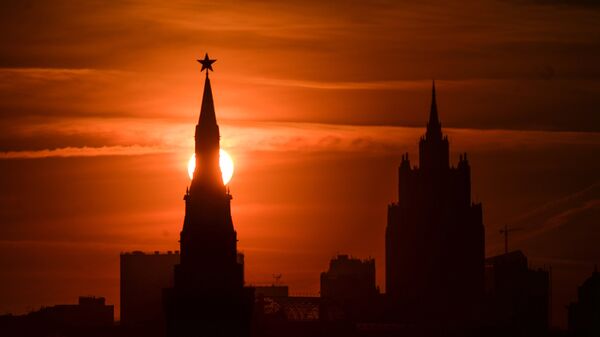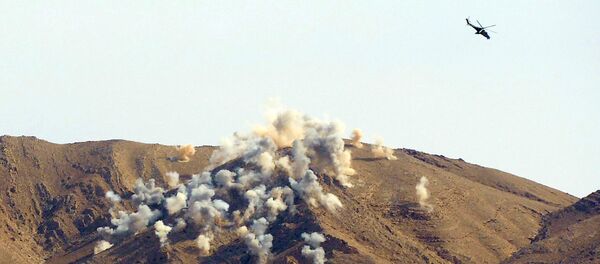Analyzing the rapidly shifting international situation, Fischer noted in his article that if "two weeks ago, it seems that the Russian intervention in the war in Syria would only further split the already disparate coalition fighting against the Islamic State," after "the terrorist attacks in Paris, Russia has, on the contrary, become a key partner in the fight against terrorism, and not only because it now seems that the [destruction of the Russian passenger] plane over Sinai appears to have been ISIL's handiwork."
The journalist explained that "it appears that a common enemy is capable of uniting people not only within governments, but on the international level as well, which, in general is a good thing."
The journalist recalled that the war in Syria "is not just about ISIL's destruction, but also about the political future of Syria," noting that Bashar Assad is not very keen on the West's idea of forcing him out of power, with Moscow not so keen on the idea either.
Nevertheless, Fischer suggests that the common efforts against the jihadists in Syria may result in a transformation of the earlier "war of values" which emerged following Crimea's return to Russia and the Ukrainian civil war, for which the West blamed Moscow, into a "traditional game of realpolitik," with the prospect of the two sides coming to some agreement in one area, pending assistance in another.
Ultimately, the journalist believes that much will depend on how the situation continues to develop, but notes that in any case, it would be unrealistic to expect that the situation will result in a substantive improvement in relations between Russia and the West. Fischer bluntly notes that the common fight against ISIL "will not bring us to fall in love with one another."
Fischer is pessimistic in his assessment of the global anti-ISIL coalition's ability to defeat the jihadists in the foreseeable future, given that none of the non-Middle Eastern players are eager to launch a ground operation. However, he does unscrupulously suggest that a prolonged war in Syria and Iraq may actually "be advantageous, first and foremost, to Russia."
Suggesting that Russia is looking to "compensate for the political and economic losses" which came out of the situation surrounding Ukraine, the journalist notes that "if support in Syria is the price for easing [the West's] economic sanctions, why not?"
Unfortunately, according to Fischer, "President Putin cannot just hope for such a simple scheme to become a reality," but "what is clear is that the West's very need to integrate Russia into its anti-ISIL fight…works to facilitate the realization of Russia's desire to be accepted at the international level and to regain its great power status."
Fischer recalls how, in the course of the 2012 election campaign, then-Prime Minister Vladimir Putin promised that "we will not allow anyone to interfere in our affairs, to force their will on us." Now, "three years later," the journalist suggests, "we can add to this that Putin, on the whole, has been able to assert his own will." This has been made possible, in Fischer's view, "with the help of historical circumstances, and in light of Western politicians who still cannot figure out how to treat this extremely strong 'will to great power status', and even more so, how to interact with it."




